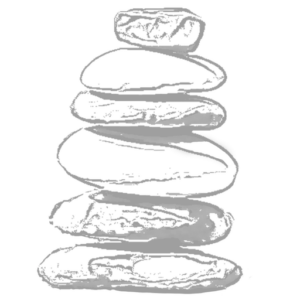A podcast from The Science of Success that I listened to recently that was about creativity with Beth Cornstock, a business executive and author, currently at Nike. However what really stuck with me was her invitation to see ‘no’s’ (when you ask for something and turned down), not as rejections but to hear them as ‘not yets’, an invitation to rethink, re-ask, examine your powers of persuasion and then to come at the ask again from a different angle.

Something about this resonated with me. When I lived in Indonesia, I loved the fact that there are essentially two words for ‘no’. One that you use when the answer is definitive – no I can’t fly, no I’ve no intention of applying for that job it sounds terrible! And a different no, ‘belum’ when there is the possibility of a yes or a maybe in the future. A no that means not yet.
I think of myself as someone with a significant amount of grit and perseverance when there is something I want to make happen. I can think of five or six organizational initiatives which took months or even years to convince others to bring to life. Hours of figuring out how to convince and demonstrate to others that it was possible. On a couple of occasions I was handed projects that I knew others in the organization wanted to quietly die or fade out and I doubled down because I truly believed that they should survive. John Kotter’s HBR (now really old) article Leading Change: Why Transformation Efforts Fail was, and still is a key go-to framework for me on how to create and stick with change. On a personal note, those of you who know me well, know that my journey to becoming a parent was a long one that took an incredible amount of energy to stick with (and much, much support from others along the way). I can point to many examples of where not taking no for an answer proved to be a really useful quality to move through difficult times or build out incredible opportunities.
And/but I also know that there are times where perseverance has at some point turned toxic. Become stubbornness. Or has continued ironically because I was exhausted – I’ve known we should change course but I haven’t had the energy to create a new vision or path. Where it has felt like pushing against a brick wall and while I haven’t been able to see any other option, I also have known that this wasn’t going to move things forward. It’s also often easier to see this, more toxic form of perseverance in friends and colleagues than in myself. Why is X not moving on from a job that is clearly not allowing them to fully shine? Why can’t I see that the time is not ripe for this project? Or that I am not the right person for it?
So I’ve been reflecting on how to better spot which situation I am in (of course this is really hard because we can’t run A/B tests on our lives for the most part so we don’t ever actually know). And I think there are two questions that I find useful to helping to distinguish the difference:
- What is my body telling me? When I stop efforting and running around trying to make the thing happen, what do I notice in my body? In terms of physical sensations. And what do these sensations point to – are they warning me or inviting me forward and motivating me? We can call this our intuition. We can also look to neuroscience, understanding that there are parts of our brain that are wired to talk directly to our guts and other parts of our body and not to the pre-frontal cortex (where our logical thinking happens). And these are the parts of our brain that are alerting us to pay attention. If we tune in to how this feels in our body we can use it to inform our decision-making. However, so many of us have learned to ignore and power through physical sensations. Often to our cost.
2. What is it that I really want from this? What would happen if I let it go? (This is a question to our pre-frontal cortex!). We can get so caught up in wanting to ‘win’, whether that is winning against someone else or another team, or simply wanting to win the challenge that we’ve set, that we lost sight of what it is that we originally were wanting. If we can recall and bring to the front of our attention that piece, then we can pause to re-evaluate whether it really is still important to us and if so then check whether the path we are pursuing is the best way to get there.
For me, these two questions are really valuable in helping me determine whether I am facing a no or a not yet situation. What ways do you have for checking on whether your perseverance is supporting or harming you?
